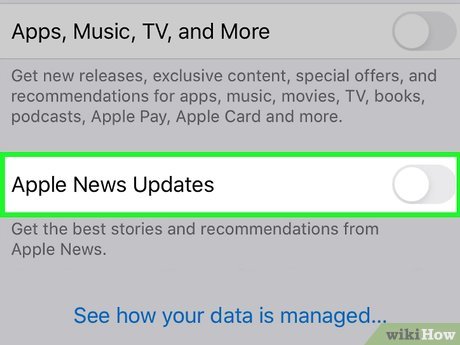Is Jeep Going Out of Business? What 2025 Financials and Market Trends Reveal
Understanding the Current Situation: Jeep and Its Parent Company
With headlines raising concerns over Jeep’s future, many are asking: Is Jeep going out of business? To answer this, it’s critical to examine the recent financial performance of Jeep’s parent company, Stellantis, and to understand the broader economic, regulatory, and strategic factors affecting the automotive sector today.
Stellantis: Financial Health and Strategic Context
Jeep operates as a flagship brand under Stellantis , one of the world’s largest automotive groups. Stellantis was created in 2021 through the merger of Fiat Chrysler Automobiles and PSA Group, managing 14 global brands including Jeep, Ram, Chrysler, Peugeot, and Opel. In 2023, Stellantis reported net revenues of €189.5 billion (approximately $205 billion USD) and a net profit of €18.6 billion ($20 billion USD), with Jeep contributing significantly to North American earnings [4] . These figures illustrated a robust, profitable company with a global footprint.
However, the first half of 2025 has seen Stellantis face notable financial challenges. The company reported a net loss of €2.3 billion (about $2.5 billion USD) for H1 2025, down sharply from a profit of €5.6 billion ($6.1 billion USD) in the same period the previous year [2] . This loss is attributed to a mix of factors, including significant pre-tax charges for restructuring, cancellation of future vehicle programs, and adapting to new technologies [1] .

Source: hotcars.com
How Tariffs and Regulatory Shifts Impact Jeep
One of the most significant pressures on Stellantis-and by extension, Jeep-has been the imposition of a 25% U.S. tariff on imported vehicles and parts, effective April 2025. This policy is meant to bolster domestic manufacturing but has sharply increased costs for companies with complex international supply chains like Stellantis [3] . In the first half of 2025, Stellantis estimated direct tariff-related losses at nearly $350 million, not including the additional impact of lost production and canceled vehicle programs.
The result: North American sales for Stellantis plummeted by 23-25% in the first half of 2025, with Jeep models particularly affected due to production gaps, especially as popular models like the Jeep Cherokee transition to new versions. These disruptions caused temporary halts at major Canadian and Mexican assembly plants, and about 900 layoffs at U.S. parts facilities [5] .
Is Jeep Actually Going Out of Business?
Despite these setbacks, there is no evidence that Jeep as a brand is going out of business. Jeep remains one of Stellantis’s most valuable and recognized names, especially in North America, where it drives a substantial share of the company’s revenue [4] . While Stellantis has posted significant losses and has suspended its full-year guidance for 2025 due to market uncertainty and ongoing tariff pressures, none of the available data or official statements indicate a shutdown or the discontinuation of the Jeep brand.
Instead, Stellantis leadership has expressed cautious optimism. CEO Antonio Filosa described 2025 as a “tough year but also one of gradual improvement,” noting improved order volumes and retail momentum for select Jeep models, such as the Grand Cherokee and Wrangler, even as the company restructures to weather external headwinds [2] .
What Does This Mean for Jeep Owners and Buyers?
If you are a current Jeep owner or considering a purchase, it’s reasonable to feel concerned given the turbulent market news. However, Jeep’s strong brand equity, loyal customer base, and significant presence in the U.S. make a complete brand exit highly unlikely in the near term. Here’s how you can stay informed and take action:
- Monitor Official Stellantis Communications: For the latest on model availability, corporate updates, and market strategy, you can visit the official Stellantis press release page and the Jeep official website . Both are real, accessible, and kept up to date.
- Contact Local Dealerships: Dealerships can provide the most current information about Jeep inventory, model updates, and potential incentives that may arise from market shifts. Use the dealership locator tool on the official Jeep website to find contact information.
- Stay Alert for Recalls or Service Updates: If you own a Jeep, check regularly for recall notices and service advisories. The National Highway Traffic Safety Administration (NHTSA) maintains a searchable recall database at nhtsa.gov/recalls .
Step-by-Step Guidance for Jeep Owners and Prospective Buyers
1. For Existing Jeep Owners:

Source: carbuyer.co.uk
If you already own a Jeep, continue with your regular maintenance schedule and consult your dealership for any updates regarding parts availability or warranty support. Should you have concerns about long-term parts or service support, consider:
- Registering your vehicle on the official Jeep website for updates and service campaigns.
- Utilizing independent certified mechanics familiar with Jeep vehicles if dealership access becomes limited.
- Consulting the NHTSA database for real-time recall and safety notice information.
2. For Prospective Jeep Buyers:
Before committing to a Jeep purchase, you may want to:
- Research recent model reviews and reliability data via established automotive publications such as Consumer Reports or Edmunds .
- Contact multiple dealerships to compare pricing, incentives, and vehicle availability.
- Ask about warranty coverage and service support in light of current market volatility.
- Review the latest news from Stellantis and Jeep for updates on new technologies, EV launches, or discontinuations.
Understanding the Broader Industry Trends
Jeep’s market challenges are not unique. Automakers worldwide are adapting to stricter regulatory frameworks, geopolitical uncertainties, and rapid technological change. The pivot to electric vehicles, in particular, is leading to restructuring costs and temporary disruptions in traditional model lineups. These patterns are likely to continue, with companies like Stellantis investing in new production platforms and phasing out older models as part of their global strategy [1] .
For consumers, this means that some degree of market turbulence is expected, but established brands like Jeep, with strong recognition and demand, are generally more resilient. While short-term disruptions may affect pricing, incentives, or model availability, the underlying brand presence remains strong.
Alternative Approaches and What to Watch For
If you’re hesitant about purchasing a new Jeep during this period, consider alternatives such as certified pre-owned (CPO) vehicles, which often come with extended warranties and have undergone rigorous inspection. Leasing can also be an attractive option if you want flexibility amid market uncertainty.
If you’re interested in electric or hybrid models, stay tuned for new product announcements from Jeep and Stellantis, as the company is increasing its investment in electrified vehicles to meet evolving regulatory standards and consumer demand.
Key Takeaways and Next Steps
Jeep is not going out of business. Although Stellantis has faced significant financial losses in 2025, these are part of broader industry challenges and restructuring efforts, not the prelude to a Jeep shutdown. Jeep remains a core brand with substantial market share, and all available evidence points to its continued operation under the Stellantis umbrella [4] .
To stay informed, regularly check the official Jeep and Stellantis websites for updates, consult trusted automotive news sources, and maintain open communication with local dealerships. If you are considering a Jeep purchase or already own one, you can proceed with confidence while keeping an eye on industry trends and potential incentives as the market stabilizes.
References
- [1] Mopar Insiders (2025). Stellantis Posts Preliminary H1 2025 Financials Overview.
- [2] Mopar Insiders (2025). Stellantis Posts $2.5B Loss In H1 2025 Report.
- [3] ABC News (2025). Jeep maker Stellantis says it will lose $2.7 billion due partly to tariffs.
- [4] Entrepreneurs.ng (2025). Is Jeep Going Out of Business? No – What the Latest 2025 Reports Show.
- [5] CBT News (2025). Stellantis pulls 2025 guidance after 20% North American sales drop.
MORE FROM oncecoupon.com













